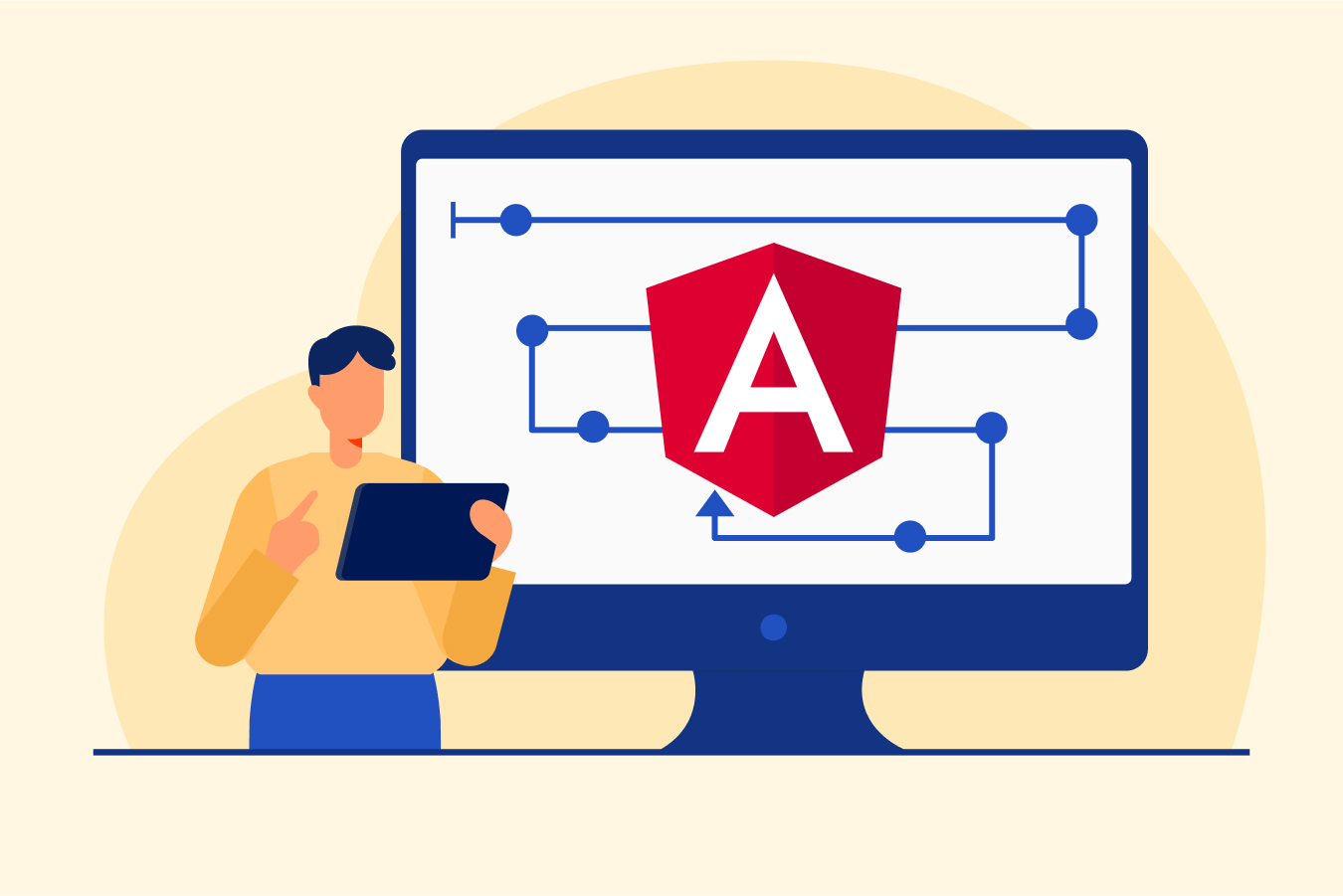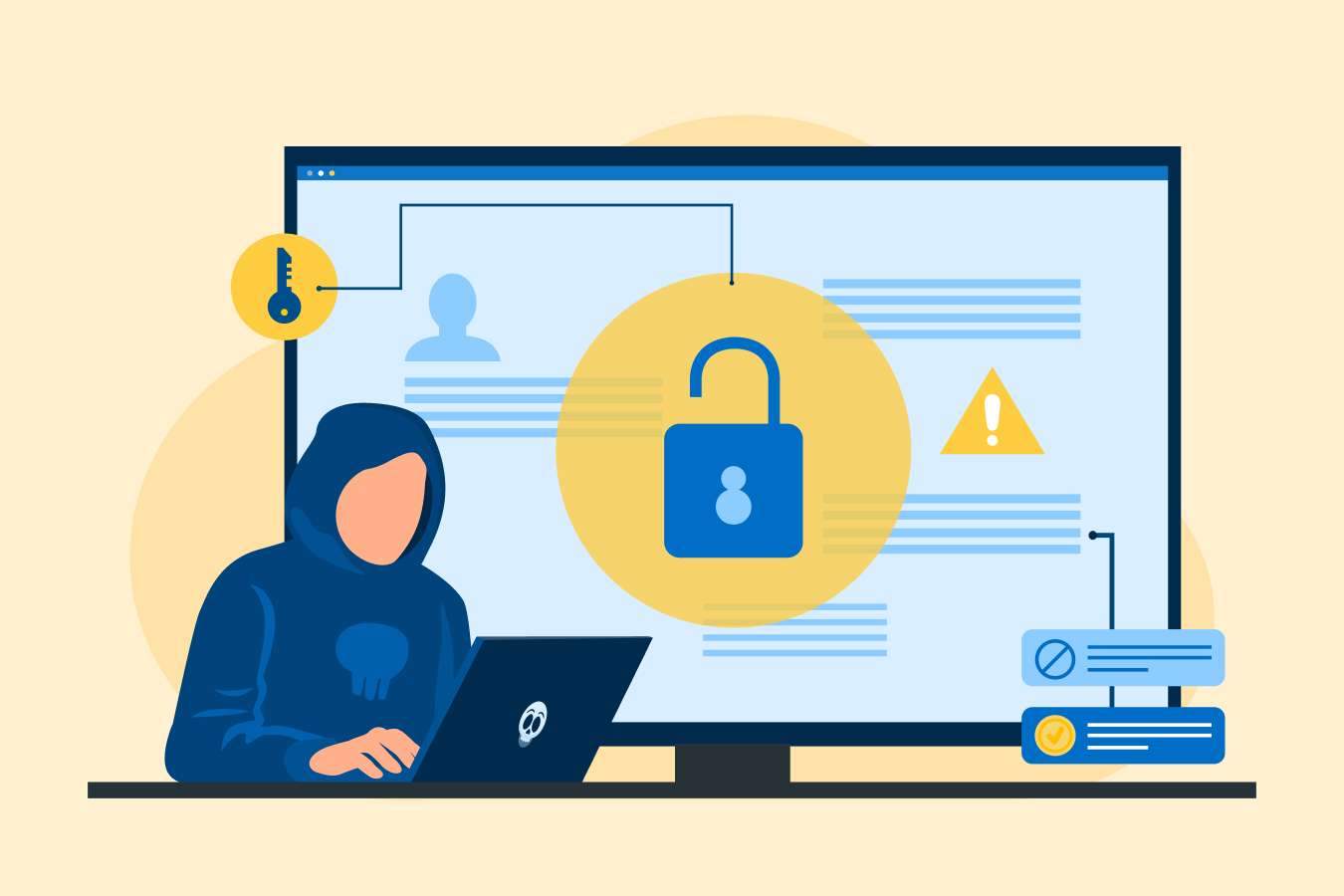How to Become a Blockchain Developer?
Blockchain technology has emerged as a revolutionary force that is transforming various industries, from finance and healthcare to supply chain management and beyond. It has the potential to disrupt traditional business models and create new opportunities for growth and innovation.
With the increasing demand for blockchain-based solutions, the need for skilled blockchain developers has never been greater. According to a study – in 2022, the worldwide market for blockchain technology was assessed to be worth USD 10.02 billion. Analysts predict that this market will continue to experience substantial growth, with a projected compound annual growth rate of 87.7% from 2023 to 2030.
In this blog, we’ll describe who is a blockchain developer, explain blockchain developer skills, and will teach you how to become a Blockchain Developer along with the salary one can expect in this field.
What is Blockchain Technology?
Blockchain technology is a distributed ledger system that enables secure, transparent, and tamper-resistant transactions without the need for intermediaries such as banks or government institutions. In a blockchain network, transactions are verified and recorded by a decentralized network of nodes, which ensures that no single entity can alter the data or manipulate the network.
The technology is based on cryptography, which ensures that the data stored on the blockchain is secure and cannot be accessed or altered without the appropriate keys. Each transaction on the blockchain is linked to the previous one in a chain, forming a secure and immutable record of all transactions that have taken place.
How to Become a Blockchain Developer?
A strong foundation in various technical skills is required to become a Blockchain developer. You can start by taking a Blockchain developer course to understand the basics of the technology. The different parameters you need to know to become a Blockchain developer are as follows.
1. Understanding Blockchain Technology
- Learn the fundamental concepts of blockchain technology, such as its architecture, consensus mechanisms, and the different types of blockchains.
- Familiarize yourself with the development environments and tools for blockchain, such as Solidity, Web3.js, and Truffle.
- Understand the use cases of blockchain technology in various industries, such as finance, healthcare, supply chain management, and more.
2. Cryptography and Cryptocurrency
- Understand the basic principles of cryptography, such as encryption, decryption, hashing, and digital signatures.
- Learn the fundamentals of cryptocurrencies, such as how they work, their properties, and the different types of cryptocurrency wallets.
- Familiarize yourself with the different types of consensus algorithms used in cryptocurrencies, such as proof-of-work, proof-of-stake, and delegated proof-of-stake.
3. Distributed Systems and P2P Networks
- Understand the concept of distributed systems and how they work, including their advantages and disadvantages.
- Learn about P2P networks, how they differ from client-server networks, and the various protocols used in P2P networks, such as BitTorrent and IPFS.
- Familiarize yourself with the different types of distributed ledgers, such as public, private, and hybrid blockchains.
4. Smart Contracts
- Understand the concept of smart contracts and how they differ from traditional contracts.
- Learn how to write smart contracts using Solidity, the most popular programming language for Ethereum-based smart contracts.
- Familiarize yourself with the tools and frameworks used for smart contract development, such as Remix, Ganache, and Embark.
Blockchain Developer Skills
Some of the necessary yet basic skills one needs to have to become a Blockchain developer are:
1. Programming Languages
- Solidity: It is the most popular programming language for developing smart contracts on the Ethereum blockchain.
- JavaScript: It is a popular language used for building decentralized applications (dApps) that run on blockchain platforms.
- C++: It is used for developing blockchain applications, especially for platforms like Bitcoin and Ripple.
- Go: It is a language used for building distributed systems, including blockchain networks.
- Python: It is a popular language used for creating blockchain applications and developing tools for blockchain development.
2. Blockchain Platforms
- Ethereum: It is the most popular blockchain platform for building decentralized applications and executing smart contracts.
- Bitcoin: It is the first and most well-known blockchain platform, primarily used for cryptocurrency transactions.
- Hyperledger: It is a blockchain platform for building enterprise-grade blockchain applications and solutions.
3. Web Development Skills
- HTML/CSS: These languages are used for designing the user interface of web applications.
- JavaScript: It is used for creating interactive and dynamic web applications.
- React: It is a popular JavaScript library used for building user interfaces for web applications.
- Node.js: It is a runtime environment used for developing server-side web applications.
4. Tools and Frameworks
- Truffle: It is a development framework for Ethereum-based smart contracts and dApps.
- Remix: It is an online IDE for developing and testing Solidity smart contracts.
- Ganache: It is a personal blockchain for Ethereum development that allows developers to test their smart contracts in a local environment.
Career Opportunities for Blockchain Developers
1. Job Roles in Blockchain Development
There are various blockchain developer jobs in the market as it is a growing field. Some of them are:
A. Blockchain Developer:
- Responsible for designing and developing blockchain-based applications, including smart contracts and dApps.
- Develop and implement the consensus mechanism for the blockchain platform.
- Write and execute unit tests to ensure the quality of the code and identify any bugs or issues.
B. Blockchain Architect:
- Responsible for designing the architecture of the blockchain platform, including the underlying infrastructure, consensus mechanism, and security measures.
- Work with other developers to ensure the scalability and efficiency of the blockchain network.
- Develop and implement security measures to prevent unauthorized access and data breaches.
C. Blockchain Consultant:
- Advise clients on the best practices and strategies for implementing blockchain technology in their businesses.
- Provide guidance on the selection of blockchain platforms and technologies based on the client’s needs.
- Assist clients in the development and deployment of blockchain-based solutions.
D. Blockchain Analyst:
- Responsible for analyzing data on blockchain transactions and market trends.
- Develop reports and insights on the performance of different blockchain platforms and cryptocurrencies.
- Conduct research and analysis on the regulatory environment and legal considerations related to blockchain technology.
2. Average Salary of a Blockchain Professional
A. Blockchain Developer:
- Entry-level (0-2 years of experience): ₹3-6 lakhs per annum
- Mid-level (2-5 years of experience): ₹6-15 lakhs per annum
- Experienced (5+ years of experience): ₹15-30 lakhs per annum
B. Blockchain Architect:
- Entry-level (0-2 years of experience): ₹4-8 lakhs per annum
- Mid-level (2-5 years of experience): ₹8-20 lakhs per annum
- Experienced (5+ years of experience): ₹20-40 lakhs per annum
C. Blockchain Consultant:
- Entry-level (0-2 years of experience): ₹3-6 lakhs per annum
- Mid-level (2-5 years of experience): ₹6-15 lakhs per annum
- Experienced (5+ years of experience): ₹15-30 lakhs per annum
D. Blockchain Analyst:
- Entry-level (0-2 years of experience): ₹3-6 lakhs per annum
- Mid-level (2-5 years of experience): ₹6-15 lakhs per annum
- Experienced (5+ years of experience): ₹15-30 lakhs per annum
3. Companies Hiring Blockchain Developers
Blockchain Development has been widely utilized by numerous corporations and organizations all around the world since its beginning. If you are rightly skilled, you can land Blockchain Developer jobs easily. The companies using this technology are-
IBM:
- One of the leading companies in the blockchain industry, IBM offers various blockchain-based solutions and services.
- Constantly hiring blockchain developers for its blockchain division, IBM Blockchain.
Microsoft:
- Developing its own blockchain platform, Azure, Microsoft is a major player in the blockchain industry.
- Hiring developers to work on its blockchain platform and other blockchain-based solutions.
Accenture:
- Accenture is a global professional services company that offers various blockchain-based solutions and services.
Deloitte:
- Deloitte is a multinational professional services network that offers various blockchain-based solutions and services.
- Hiring professionals to work on its blockchain division and develop blockchain-based solutions for clients.
ConsenSys:
- ConsenSys is a blockchain software company that offers various blockchain-based solutions and services.
- Constantly hiring blockchain developers to work on the blockchain platform.
Chain:
- Chain is a blockchain software company that offers various blockchain-based solutions and services.
Importance of Blockchain Technology
Following are some of the points that describe the importance of Blockchain Technology:
- Provides secure and transparent record-keeping, enhancing trust in transactions
- Reduces the need for intermediaries such as banks or governments, enabling peer-to-peer transactions that are faster, cheaper, and more secure
- Prevents fraud by using cryptography to ensure that data is tamper-resistant and immutable
- Increases efficiency and reduces costs by enabling automated and decentralized transactions
- Improves traceability and accountability in industries such as supply chain management and healthcare
- Facilitates the development of new business models and opportunities
- Enhances financial inclusion by enabling access to financial services for individuals and businesses that are underserved or excluded from traditional banking systems.
Conclusion
Blockchain technology is a rapidly growing field that offers many opportunities for professionals who are skilled in this area. The demand for blockchain professionals such as developers, architects, analysts, and consultants is rapidly increasing as various industries aim to adopt blockchain solutions. This trend is expected to continue as more companies recognize the benefits of blockchain technology and seek to leverage it to improve their operations and gain a competitive advantage.






